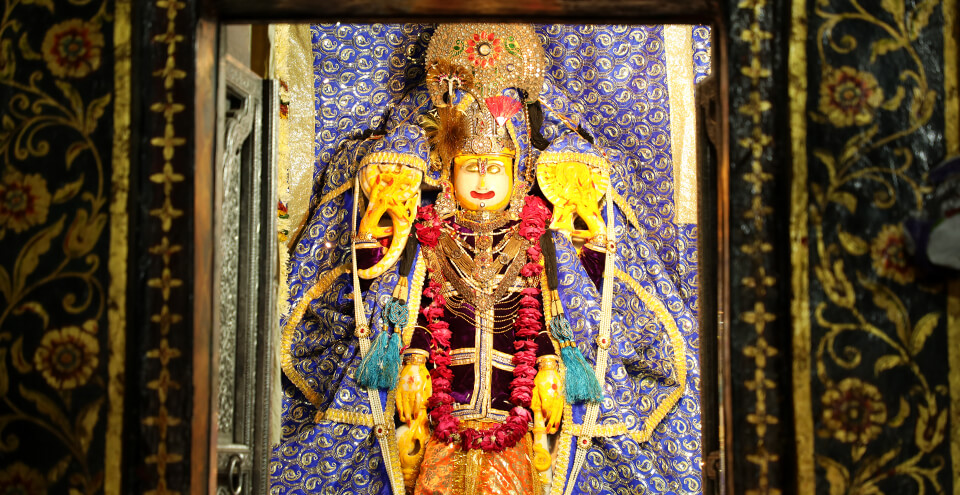
Diggi Kalyanji Temple: A Glimpse into Rajasthan’s Spiritual and Architectural Heritage
The Diggi Kalyanji Temple is a revered Hindu temple situated in Diggi, a small town in the Jaipur district of Rajasthan, India. This temple is dedicated to Kalyanji, a local deity who holds significant spiritual and cultural importance in the region. Known for its historical significance and architectural charm, the Diggi Kalyanji Temple is a notable site for both devotees and visitors.
Location and Historical Context
- Location: Diggi, Jaipur District, Rajasthan, India
- Historical Context: Diggi is a historic town in Rajasthan known for its heritage and traditional values. The Diggi Kalyanji Temple is an integral part of this cultural landscape, reflecting the deep-rooted religious practices and architectural traditions of the area.
Architectural and Design Features
1. Traditional Temple Architecture
Architectural Style: The Diggi Kalyanji Temple features traditional Rajasthani temple architecture. It includes elements such as a sanctum sanctorum (garbhagriha), a central hall (mandapa), and a spire (shikhara). The design emphasizes creating a serene and sacred environment for worship.
Materials: The temple is constructed using local sandstone or marble, which is common in Rajasthani temples. This choice of materials not only enhances the temple’s durability but also its aesthetic appeal.
2. Main Shrine
Deity Representation: The central deity of the temple is Kalyanji, who is worshipped with great devotion by the local community. The idol or image of Kalyanji is typically placed in the sanctum sanctorum and is the focal point of worship and rituals.
Architectural Details: The main shrine and surrounding areas are adorned with intricate carvings and artwork. These details often include depictions of deities, mythological scenes, and decorative motifs that contribute to the temple’s sacred ambiance.
3. Temple Complex
Prayer Hall: The temple complex includes a prayer hall where devotees gather for worship, meditation, and religious ceremonies. The design of the hall is intended to foster a peaceful and contemplative atmosphere.
Courtyards and Gardens: The temple may feature open courtyards or gardens that provide space for congregational activities and festivals. These areas enhance the overall spiritual experience and offer a tranquil setting for reflection.
Cultural and Spiritual Significance
1. Spiritual Hub
Devotional Practices: The Diggi Kalyanji Temple serves as a central place of worship for the local community. Devotees visit the temple to perform rituals, offer prayers, and seek blessings from Kalyanji. The temple plays a significant role in the spiritual life of the region.
Festivals and Events: The temple is known for celebrating various Hindu festivals and local events with special ceremonies and communal gatherings. These celebrations include Diwali, Holi, and Navratri, which are marked by devotional services, processions, and festive activities.
2. Cultural Heritage
Local Traditions: The temple is an important part of Diggi’s cultural and religious traditions. It helps preserve and promote local customs and rituals, contributing to the continuity of regional heritage.
Historical Importance: The Diggi Kalyanji Temple reflects the historical and cultural legacy of Diggi and the surrounding region. It represents the architectural and spiritual achievements of the area’s religious practices.
Visiting Diggi Kalyanji Temple
1. Planning Your Visit
Timings: The temple is typically open throughout the day, with specific timings for prayers and rituals. It is advisable to check the temple’s schedule and any special events before planning your visit.
Entry Guidelines: There is usually no formal entry fee, but visitors should adhere to the temple’s rules and guidelines. Dress modestly, remove shoes before entering the main shrine, and maintain decorum to respect the sacred space.
Local Customs: Engaging in the temple’s rituals and learning about local practices can enhance your visit. Understanding the significance of the temple and interacting with the local community will provide a richer experience.
2. Exploring the Area
Nearby Attractions: While visiting the Diggi Kalyanji Temple, explore other attractions in the Jaipur district, such as the Amber Fort, City Palace, and Jantar Mantar. These sites offer additional insights into Rajasthan’s cultural and historical heritage.
Local Markets: Diggi and the surrounding areas have markets that offer traditional Rajasthani crafts, textiles, and cuisine. Visiting these markets can provide a broader perspective on the region’s cultural and economic life.
Experience Spiritual and Cultural Richness
The Diggi Kalyanji Temple stands as a beacon of spiritual devotion and architectural beauty in Rajasthan. Its traditional design, cultural significance, and serene environment make it a meaningful destination for those interested in exploring local religious practices and historical heritage.
Immerse yourself in the spiritual and cultural richness of the Diggi Kalyanji Temple. Let the temple’s divine ambiance and historical importance enhance your visit to Diggi, providing a deeper appreciation of Rajasthan’s enduring legacy and religious traditions.
